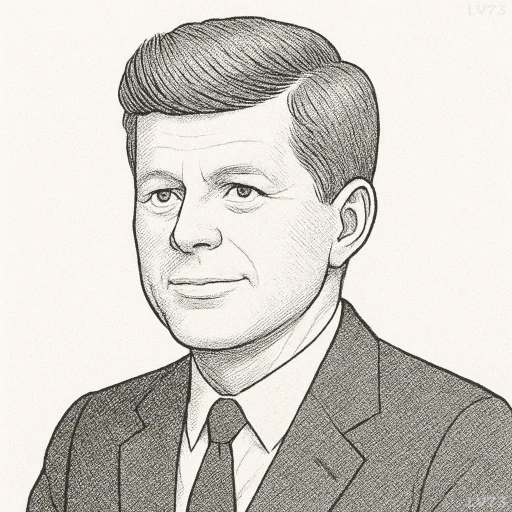“If art is to nourish the roots of our culture, society must set the artist free to follow his vision wherever it takes him.”

- May 29, 1917 – November 22, 1963
- American
- Politician
table of contents
Quote
“If art is to nourish the roots of our culture, society must set the artist free to follow his vision wherever it takes him.”
Explanation
In this statement, John F. Kennedy underscores the importance of art as a vital part of cultural development and societal growth. He argues that for art to truly enrich and nourish the cultural fabric of a society, it must be allowed the freedom to evolve and take on unexpected forms. The artist, in Kennedy’s view, must not be restricted by societal norms, political pressures, or commercial interests. Instead, the artist’s vision should be supported and protected, because only in an environment of freedom can art truly flourish and provide authentic insights into the human experience.
This statement reflects Kennedy’s broader belief in the importance of creativity and the role of the artist in reflecting and challenging the values of society. Artists, in their pursuit of truth and beauty, often provide fresh perspectives that can help a culture question its assumptions and imagine new possibilities. By “setting the artist free,” Kennedy implies that society benefits when artists are given the autonomy to explore the full range of human experience, even if their work may challenge conventional ideas or provoke discomfort. This is in contrast to a more restrictive society that stifles creativity through censorship, conformity, or fear of the new.
In today’s world, Kennedy’s words remain highly relevant. Freedom of expression continues to be a cornerstone of democratic societies, and the role of the artist in speaking truth to power, shedding light on social issues, and exploring the complexities of the human condition is as important as ever. Whether through literature, visual art, film, or music, artists continue to push boundaries and shape public discourse. At the same time, there are ongoing challenges to artistic freedom—ranging from government censorship to corporate influence—that can hinder the creative process. Kennedy’s call to empower artists to pursue their work without constraint serves as a reminder that a society that values art must also ensure that freedom is at the heart of its cultural life, allowing art to inspire, provoke, and ultimately nourish the roots of civilization.
Would you like to share your impressions or related stories about this quote in the comments section?



